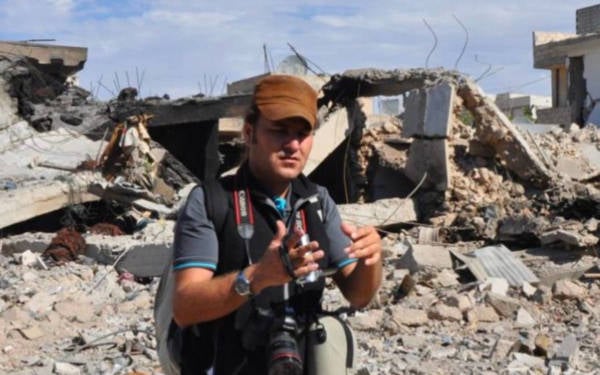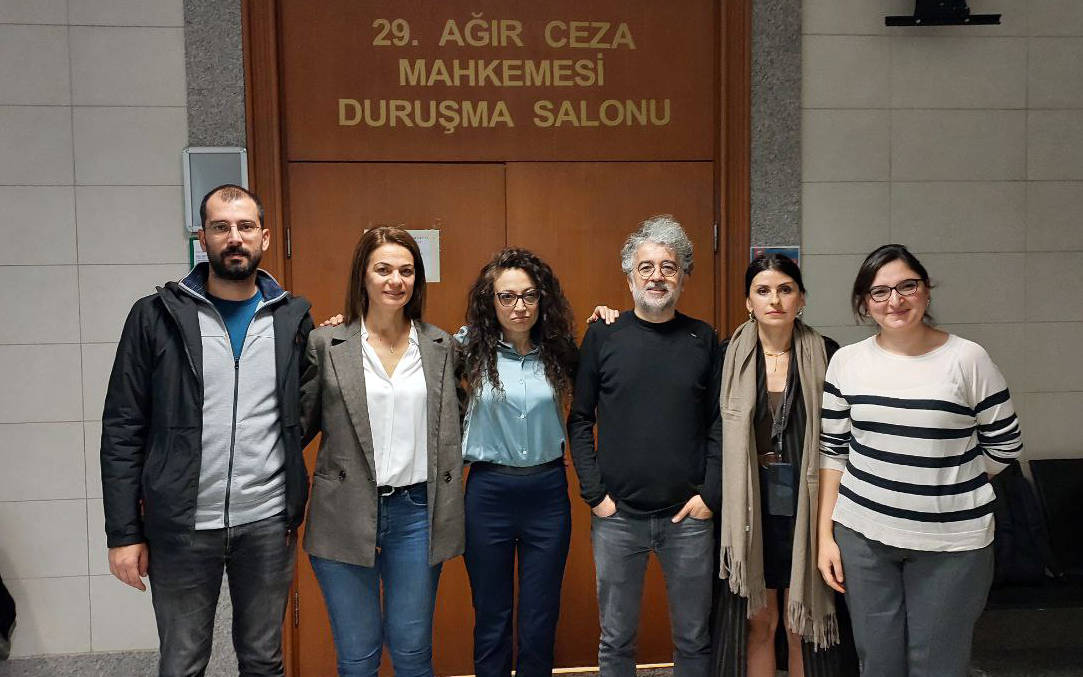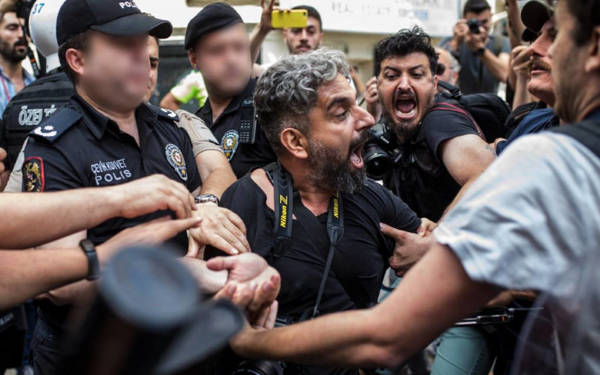BİA MEDIA MONITORING / JULY-AUGUST-SEPTEMBER 2023
Desire to silence journalists to conceal crimes

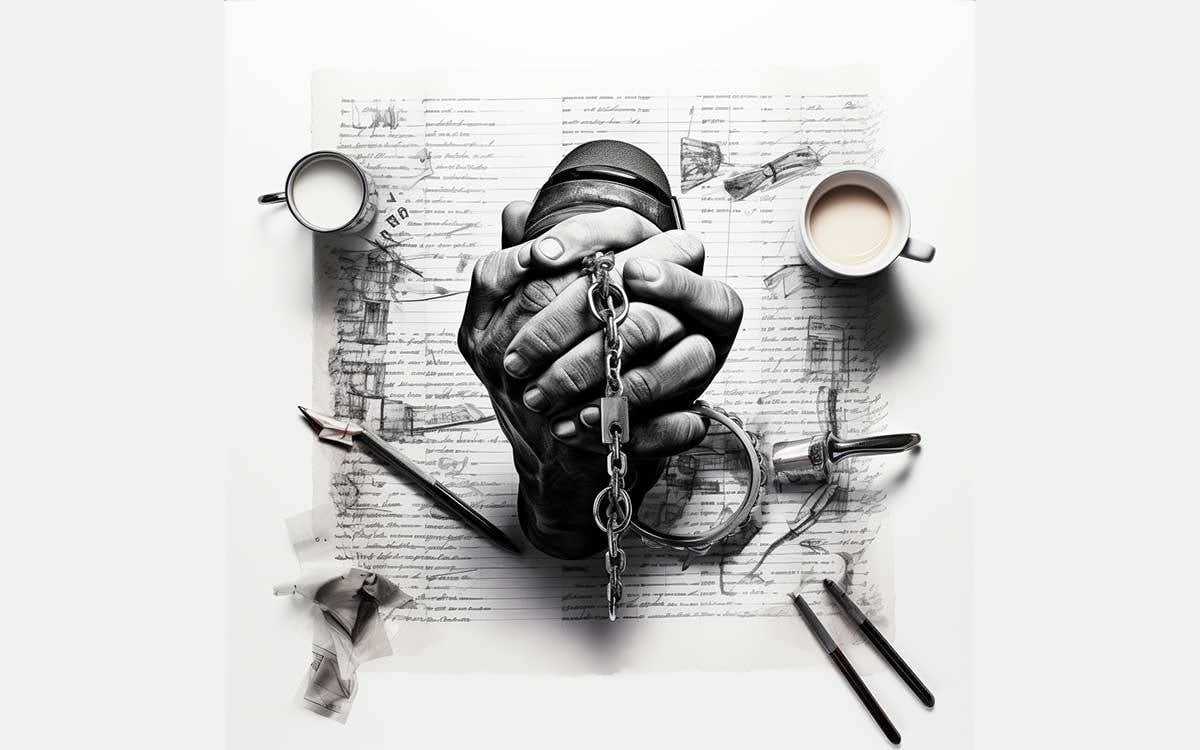
The BİA Media Monitoring Report covering the period from July to September reveals that in the past three months, 206 journalists have lived under the threat of imprisonment primarily due to cases based on the Turkish Penal Code and the Anti-Terrorism Law. The report highlights that critical media is being suppressed with the imprisonment of many journalists such as Barış Pehlivan, Merdan Yanardağ, and Abdurrahman Gök, and that the judiciary is turning a blind eye to journalists like Hale Gönültaş and İsmail Arı becoming targets of certain religious sects, religious groups, and illegal organizations. Additionally, the report indicates attempts to restrict media representatives' access to demonstration areas with 10 detentions.
The report also points out a fundamental issue: the Constitutional Court, as an individual application authority, has previously made many positive decisions regarding journalist rights, such as violence, internet censorship, and arbitrary cases, but these decisions have been ignored by first-instance courts, and the cycle of violations persists. In the last three months, three applications were made to the Constitutional Court, totaling 39,000 lira in compensation, and imprisoned journalist Merdan Yanardağ and 18 Kurdish journalists also applied. Similarly, the Parliament ignored the Constitutional Court's request for regulations regarding access restrictions on online journalism and granted a one-year period.
Lastly, the European Parliament's recent report on Turkey, which has fallen to 165th place in the World Press Freedom Index covering 180 countries, highlights a "crossroads" due to the long-standing lack of progress in fundamental freedoms, media freedom, and the rule of law. It suggests an "alternative path" as a solution.
206 journalists on trial in three months
During July, August, and September, at least 148 journalists were on trials conducted or initiated based on regulations such as the Turkish Penal Code (TCK), Anti-Terrorism Law (TMK), and Law on Meetings and Demonstrations No. 2911. Out of these journalists, 97 faced charges of "membership in an organization" and "aiding an organization," while 29 were subjected to prosecution for "making propaganda for an organization" or "pointing to the target of a person fighting against terrorism." During this period, 12 of the accused journalists were tried on charges of "discrediting state institutions," and 12 others faced trial for "resisting the police" or "violating Law No. 2911." Three journalists were also being tried in defamation cases during this period.
Additionally, 30 journalists were involved in criminal cases related to "insult" and "insulting a public official," while 17 faced charges of "insulting the President." This brings the total number of accused journalists mentioned in the three-month report to 206. Furthermore, three journalists were tried in cases demanding a total of 420,000 lira in compensation.
Fidan, Gürlek, and Bircan rely on the Anti-Terrorism Law
Apart from Fahrettin Altun, the Director of Presidential Communications, who got four journalists stood trial for the "Unlicensed buildings near the Bosphorus" article in Cumhuriyet newspaper, İrfan Fidan, the former İstanbul Chief Public Prosecutor and current Constitutional Court member, Akın Gürlek, who was appointed Deputy Minister of Justice, and Judge Murat Bircan, who moved to the judiciary after being unable to enter politics with the AKP and imposed penalties in the Gezi case, are also trying to suppress journalists who write about their "rapid promotions" or "wrong" practices by filing complaints of "marking a person fighting against terrorism as a target for terror groups." The latest examples of this are Furkan Karabay, editor of Gerçek Gündem website, and the website's managing editor, Faruk Eren; Mansur Çelik, editor-in-chief of ANKA News Agency; journalist Ayça Söylemez, an editor of bianet, and İsmail Saymaz, a columnist for Sözcü newspaper.
One of the 29 defendants of the TMK is Merdan Yanardağ, the editor-in-chief of Tele1, who will appear in court on October 4. The journalist will be tried on charges of "terrorist organization propaganda" and "praising the crime and the criminal" for advocating a more transparent policy regarding the imprisoned PKK leader Abdullah Öcalan.
In Turkey, where about twenty journalists are imprisoned for their professional activities, in the last three months, Mezopotamya Agency (MA) correspondent Fırat Can Arslan and journalist-writer Barış Pehlivan were imprisoned, while the detention of Merdan Yanardağ, the General Director of TELE1 and a writer for BirGün newspaper, since June 27, has had two appeals against his detention rejected.
Turkey, which carries out political arrests, both individual and collective, depending on the political conjuncture (15 Kurdish media representatives were arrested in Diyarbakır in June 2022), is periodically included in the category of "countries that detain the most journalists" worldwide.
10 journalists detained, harsh police intervention
In July, August, and September, at least 10 journalists, including six women, were detained from four different cities for their professional activities. Lately, plastic handcuffed detentions and violence against media representatives have become more common. Four of the journalists were detained after reporting on the appointments of the prosecutor and judge overseeing the files of 16 journalists at Diyarbakır Courthouse. Photojournalist Berkcan Zengin and journalist Zeynep Kuray were also detained while reporting on workers at Agrobay Seracılık in Bergama, İzmir.
During the same period last year, at least five media representatives, including three women and one LGBTI+ individual, were detained. Once again, Zeynep Kuray's ability to work was hindered, this time while covering a construction worker's protest in Istanbul.
10 journalists subject to assaults; growing "religious" threats
In the past three months, at least 10 journalists, including two women, were subjected to physical assaults, and two of them received death threats. In June, a situation similar to the severe beating of Sinan Aygül by municipal guards in Bitlis Tatvan occurred in Viranşehir, Şanlıurfa. At the end of August, the bodyguard and relative of Viranşehir Mayor Salih Ekinci assaulted Mehmet Karakeçili, the editor-in-chief of Viran TV, who had written about corruption allegations related to the municipality. During the same period last year, at least 20 journalists, mostly attacked by the police and MHP circles, were assaulted.
Employees affiliated with local governments attempt to intimidate journalists in this manner, while in the last three months, circles that threatened journalists with death, such as the examples of BirGün newspaper reporter İsmail Arı and Mezopotamya Agency (MA) editor Bilal Güldem, were noteworthy. In May 2022, the failure to file a lawsuit regarding the threats made by the Tevhid Group against journalist Hale Gönültaş, who had been threatened after her report for Kısa Dalga, was indicative of impunity and encouraged those who rely on it.
Four journalists who were monitoring the resistance of villagers against the mining area planned to be opened in Akbelen Forest in Muğla Milas were subjected to violence and pepper spray fired from close range. These incidents exemplify the disregard for environmental journalism by officials and gendarmes.
Breaking the impunity barrier is difficult, but journalists don't give up!
The past three months sadly demonstrate that the enormous challenges in the judicial process journalists face when seeking justice against violence does not exist when it comes to complaints against and trials of media representatives.
AFP photojournalist Bülent Kılıç's detention and torture, former bianet reporter Beyza Kural's detention in a cuffed position inside a police vehicle, the severe assault against Yeniçağ newspaper columnist Yavuz Selim Demirağ in front of his home in Ankara on May 10, 2019, the heavy attack by two armed guards of Tatvan Mayor Mehmet Emin Geylani on Sinan Aygül, the decision not to prosecute death threats against Hale Gönültaş following her news at Kısa Dalga, the detention of journalist Sibel Hürtaş, who wanted to follow bar association presidents' protests against the Multiple Bar Associations Law, and the violence against Şarköy’ün Sesi newspaper executives Yakup Önal and Deniz Önal, among many other examples, all point to this difficulty and double standard.
However, journalists are not giving up! While covering the Saturday Mothers/People's demonstration, dokuz8 news site reporter Fatoş Erdoğan, who was assaulted by the police, has joined the list of journalists who have recently taken legal action against violations of the law.
17 more journalists become "Presidential" offenders, 74 convictions in 9 years
In the last three months, at least 17 journalists and cartoonists (Merdan Yanardağ, Sedef Kabaş, Barış Pehlivan, Ozan Alper Yurtoğlu, Ahmet Sever, Deniz Yücel, Baransel Ağca, Julien Serignac, Gerard Biard, Laurent Sourisseau, "Alice," Hakkı Boltan, Ramazan Yurttapan, Haydar Ergül, Erk Acarer, Rüstem Batum, and Hayko Bağdat) have been involved in cases based on allegations of "insulting the President." The total penalty requested from these files is 79 years and 4 months in prison. Additionally, journalist and writer Levent Gültekin, who was recently acquitted of this charge, is facing a new investigation for his comments on Halk TV.
No convictions have been reported related to these cases in the past three months. Unfortunately, trials based on the charge of "insulting the President" continue despite the Venice Commission's recommendation to abolish this provision and the European Court of Human Rights' conviction in the Vedat Şorli case in October 2021. The number of journalists convicted to prison or fined for this charge stands at 74 since Erdogan became the President in August 2014.
114 online news outlets and VOA Turkish banned
During the period from July to September, the Peace Judgeships of Criminal Courts or the Association of Access Providers banned access to at least 114 online news articles that addressed issues such as corruption, bribery, favoritism, and exploitation of religious beliefs or criticized them. One of the issues where the Peace Criminal Judgeship stepped in was the reports about the Court of Cassation member Yüksel Kocaman, which claimed that he was associated with Ayhan Bora Kaplan, who was said to be close to former Interior Minister Süleyman Soylu. Similar news had been published by Cumhuriyet, BirGün, and Halk TV. During this period, bans were also imposed for the benefit of capital circles such as President Erdogan's sons Burak and Bilal Erdogan and Süleyman Çetinsaya, Chairman of the Board of Directors of Artaş Holding.
Additionally, the 9th Peace Judgeship of Criminal Courts blocked access to Voice of America (VOA) Turkish news site upon the request of the Radio and Television Supreme Council (RTÜK) because it had not made a license application.
Only hope is the Constitutional Court as long as the repression continues!
In the past three months, the Constitutional Court (AYM) ruled that "freedom of expression" was violated in the cases of Evrensel newspaper columnist İhsan Çaralan, Ahmet Sever the former press consultant to the 11th President Abdullah Gül, and Aykut Erdoğdu, the author of the article "Every Era's Treasurer Mehmet Cengiz" published in BirGün newspaper. Aydoğdu will receive 39,000 lira in compensation.
While it is observed that the supreme court is not quick on decisions on applications by the journalists and there are only rare rulings, the prevalence of violations in local jurisdictions still keeps the demand for AYM high: Detained journalist Merdan Yanardağ and 18 imprisoned Kurdish media employees applied to AYM during this period. After the dismissal of the case on the murder of Musa Anter due to of the statute of limitations, now the "unlawfulness and deficiencies" in the trial concerning public officials in the Hrant Dink murder case have also been brought to AYM.
On the other hand, no decisions related to journalism rights were reported from the European Court of Human Rights (ECtHR) in the last three months.
RTÜK imposes a 15 million lira fine
During the period of July, August, and September 2023, the Radio and Television Supreme Council (RTÜK) imposed a total of 10 administrative fines and two broadcast suspensions for news and program broadcasts on TV and radio stations. RTÜK imposed a total of 14,718,114 lira in administrative fines on TV stations. During this period, RTÜK also imposed an 85,738 lira administrative fine on radio stations.
The Council did not only impose the suspension of the Tele1 channel's broadcast for seven days and an administrative fine at the upper limit against the channel following the statements made by detained journalist Merdan Yanardağ about the Kurdish Issue; furthermore, the Criminal Court of Peace imposed an access ban to Voice of America (VOA) Turkish news site upon the request of the Council. Additionally, five programs of Halk TV were suspended for airing reactions of MPs on the agenda.
45 layoffs in three months
At least 45 journalists, columnists, and media workers were either laid off or forced to leave the institutions they worked for in the past three months due to reasons such as changes in editorial policies or economic downsizing. This number was eight during the same period last year.
Sputnik Turkey Bureau, Demirören Media Group, and Independent Turkish news site were among the workplaces where layoffs took place, while TRT's suspended war correspondent Elif Akkuş continues her legal fight for her rights.
BİA MEDIA MONITORING REPORT 2024
The government made journalists' lives a living hell in 2024
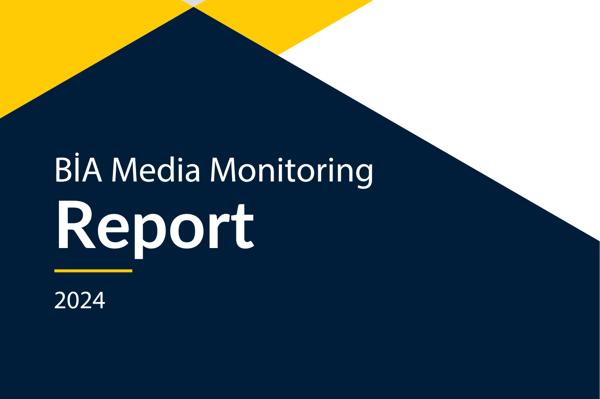
BİA MEDIA MONITORING/OCTOBER-NOVEMBER-DECEMBER 2024
Truth concealed through repression from all sides targeting journalists
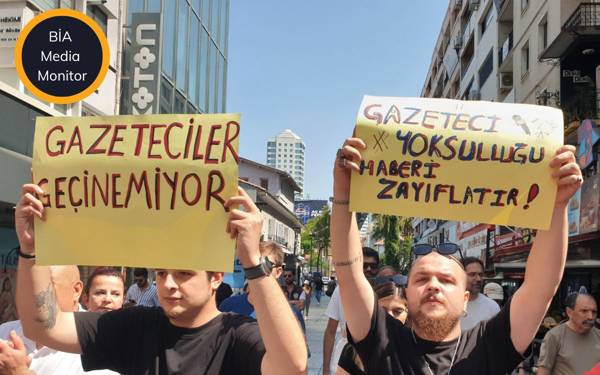
BİA MEDIA MONITORING REPORT
Just silence the journalist, and I won't touch you!
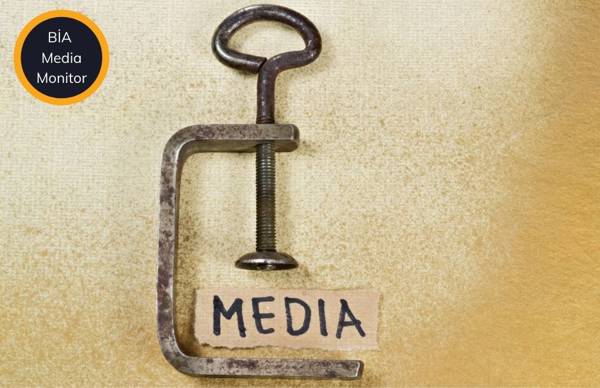
BİA MEDIA MONITORING APRIL-MAY-JUNE 2024
Journalists are on the target and have no legal security anymore!
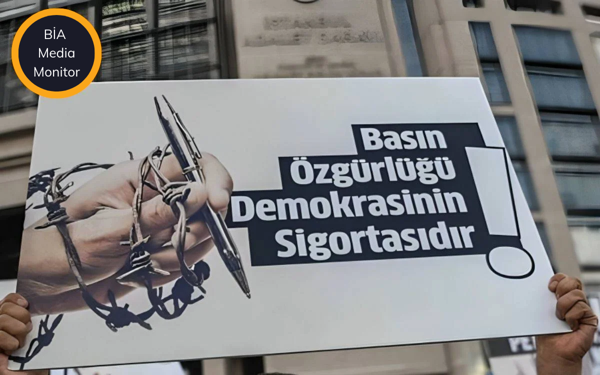
BİA MEDIA MONITORING REPORT
The era of 'judicial control' confinement and torture in journalism






